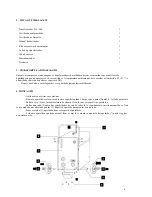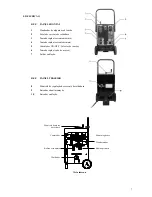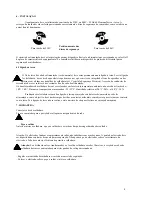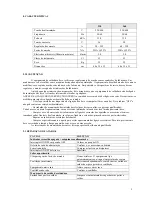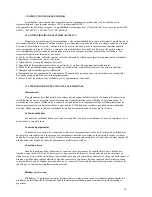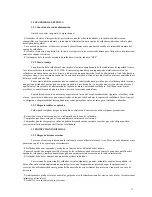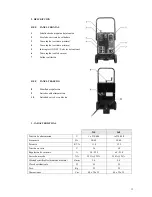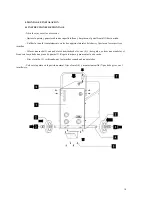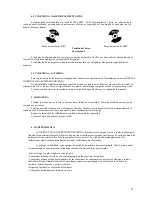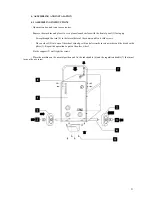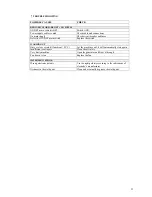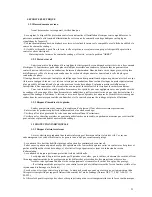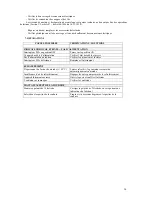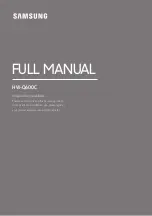
19
The helmet supplied with the equipment is provided with a protective filter. When you want to replace it, you
must precise the reference and number of opacity degree of the filter. Use the shade of lens as recommended in the
following table (opacity graduation).
Protect others in the work area from arc rays by using protective booths, UV protective goggles, and if
necessary, a welding shield with appropriate protective filter on (NF S 77-104 – by A 1.5).
Current Amps
0,5 2,5 10 20 40 80 125 175 225 275 350 450
Welding process
1 5 15 30 60 100 150 200 250 300 400 500
Coated electrodes
9 10
11
12
13
14
MIG on heavy metals
10 11
12
13
14
MIG on light alloys
10 11
12
13
14 15
TIG on all metals
9 10 11
12
13
14
MAG
10 11 12
13
14
15
Air/Arc gouging
10 11 12 13 14 15
Plasma cutting
9
10
11
12
13
Depending on the conditions of use, the next highest or lowest category number may be used.
The expression “heavy metals” covers steels, alloyed steels, copper and its alloys.
The shaded areas represent applications where the welding processes are not normally used at present.
.
NOTE: Use a higher degree of filters if welding is performed in premises which are not well lighted.
1. 3.2 Risk of internal injuries
Gases and fumes
- Gases and fumes produced during the welding process can be dangerous and hazardous to your health. Arc welding
works must be carried out in suitable ventilated areas.
- Ventilation must be adequate to remove gases and fumes during operation. All fumes produced during welding have to
be efficiently removed during its production, and as close as possible from the place they are produced.
- Vapours of chlorinated solvents can form toxic gas phosgene when exposed to ultraviolet radiation from an electric
arc.
Safety in the use of gases (welding with TIG or MIG inert gases)
Compressed gas cylinders
Compressed gas cylinders are potentially dangerous. Refer to suppliers for proper handling procedures:
- No impact: secure the cylinders and keep them away from impacts.
- No excess heat (over 50°C)
Pressure relief valve
- Check that the pressure relief screw is slackened off before connecting to the cylinder.
- Check that the union is tight before opening the valve of the cylinder. Open it slowly a fraction of a turn.
- If there is a leak, NEVER tighten a union under pressure, but first close the valve on the cylinder.
- Always check that hoses are in good condition.


